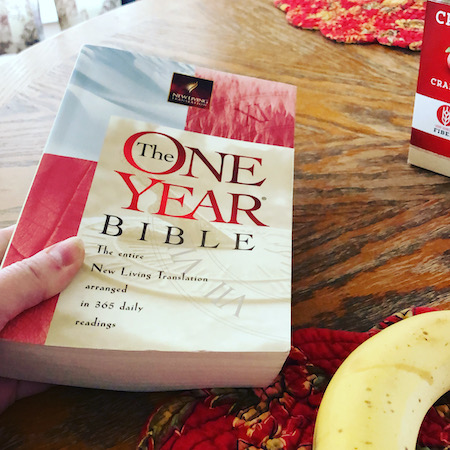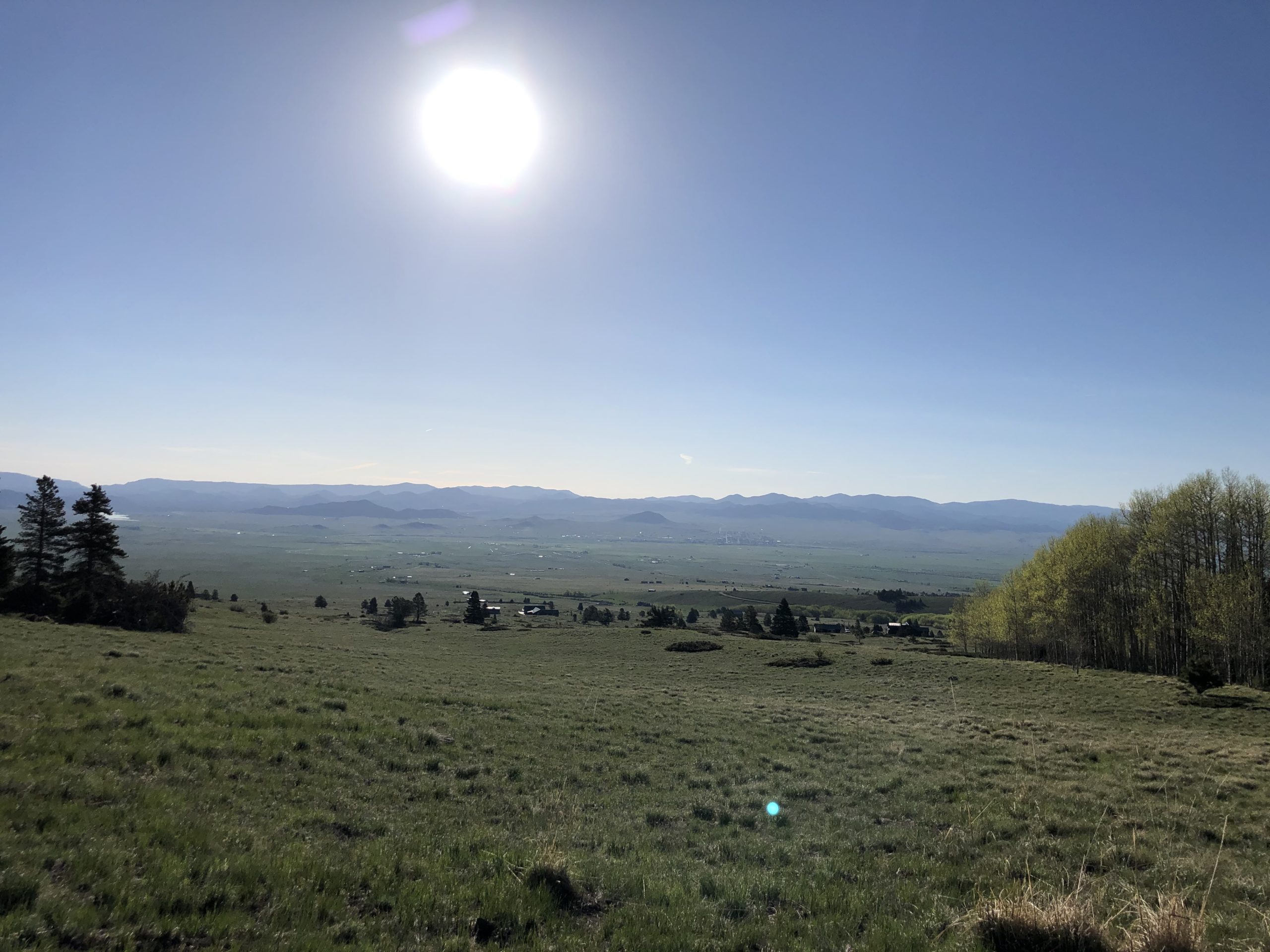It’s often said that followers of Jesus should be reading the Bible daily. Our Children’s Minister said it to our kids just this past Sunday. I nodded in agreement. Yes, daily. Bible. Yes.
Well, maybe.
The Word of God is indeed our lifeblood. It tells our Story and draws the path for us to walk as we follow our Savior. To know the Word is to trust the Word and love the Word. Yes. Definitely.
But “daily”? There’s the rub, as Hamlet said.
The hope of daily reading is appropriate. It’s also discouraging to expect. Here’s why–
First, the expectation of daily reading lends itself to verse-ing the Bible. Verse-ing is my word, and it means glancing at a single, isolated verse as we scroll Instagram (or Facebook, TikTok, that little calendar on your desk, whatever).
Scroll. Glance. Bam. “I’ve done my Bible reading for the day!”
No, actually, you haven’t. You’ve taken six to seven words out of a living document of thousands of words, and you’ve made them a justification for everything you’re already planning to do and think and say. Verse-ing distorts the Bible.
“But, if I’m supposed to read the Bible daily, is a verse a day better than nothing?”
Arguably, yes, if it leads you to deeper reading, but it’s simply not enough. Reading must be more. It must encompass whole chapters, over time, repeatedly, as come to understand our own stories as part of God’s story of redemption and grace. It doesn’t happen on Instagram.
“Okay, fine. I’ll read whole chapters a day…but, even when I’m working double shifts? Even on the 4th of July at the lake? Even when I’m sick in bed?”
The second reason why the expectation of daily Bible reading is tough to expect is because it’s just tough. You make a commitment. You grab a Bible and spend the 15-20 minutes a day in the one-year Bible. For a few days, anyway. But, wow, you miss a day. Or two. Or three. Suddenly, you’re behind. Really behind. It’s March 2. Your bookmark is still on January 24, and you give up. A real commitment to reading the Bible as it’s intended becomes a lesson in futility and frustration, and you’re not in the Word at all anymore.
“So, what’s worse? Verse-ing? Or setting myself up for failure?”
It’s a false choice. There are other ways. Followers of Jesus have managed for a very long time to inhale the Word of God without forsaking other commitments (or getting up at 3 a.m.).
Here’s my suggestion:
Commit to a long term reading (or listening) plan. A chapter or two a day. When you miss a day (drumroll please), skip the reading for the day. Yes, that’s what I wrote. Skip it. If you’re committed to reading for the long haul (i.e. the rest of your life), you’re going to come back to it next year. More importantly, you’re a whole lot less likely to get frustrated and give up altogether.
Just keep going.
I’m on Year 3 with my One Year Bible. I circle and mark and underline with a different colored pen every year, so I know that I missed most of the flood story last year. No blue ink underlining anywhere for about four chapters. But this year, I did read it. Have you ever noticed how long the ark is stuck on top of Mt. Ararat before the flood actually dries up? “The twenty-seventh day of the second month the earth” (Genesis 8:14)? That’s a whole lot of time tottering at the top of a mountain, but Noah and his people persist. It’s a lesson in patience if I ever read one. I missed it last year, but this year I didn’t.
More to the point, I didn’t give up last year when I missed those four days. I kept going, reading most days but not every day, and I discovered all over again how God was working out grace over all of creation and history. It’s such a good story. Really.



 The Lake of the Clouds Loop trail begins at the end of a road leading out of Westcliffe, Colorado. My husband and I arrived to hike it—or at least (we thought) the first few miles of it—on May 29. It was our 28th anniversary.
The Lake of the Clouds Loop trail begins at the end of a road leading out of Westcliffe, Colorado. My husband and I arrived to hike it—or at least (we thought) the first few miles of it—on May 29. It was our 28th anniversary.